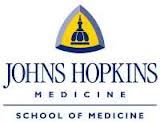Leveraging mHealth Messaging to Promote Adherence in Teens With CKD
| Status: | Recruiting |
|---|---|
| Conditions: | Renal Impairment / Chronic Kidney Disease |
| Therapuetic Areas: | Nephrology / Urology |
| Healthy: | No |
| Age Range: | 11 - 21 |
| Updated: | 11/9/2018 |
| Start Date: | October 1, 2018 |
| End Date: | February 2020 |
| Contact: | Cyd K Eaton, PhD |
| Email: | ceaton4@jhmi.edu |
| Phone: | 4105503988 |
The overall goal of this study is to develop and test effectively framed mobile health
(mHealth) messages to promote medication adherence in teens with chronic kidney disease
(CKD).
(mHealth) messages to promote medication adherence in teens with chronic kidney disease
(CKD).
Hypertension is a risk factor for chronic kidney disease (CKD) progression. Only 77% of
adolescents with CKD are adherent to antihypertensive medications despite evidence that
adherence slows disease progression. Mobile health (mHealth) applications show promise for
improving adherence but most are not designed within health-promotion frameworks, only send
medication reminders, use unreliable outcome measures, and/or have small effects on
adherence. Nonadherence is a public health problem that may benefit from using health
communication strategies to advance beyond reminders and improve mHealth efficacy. Highly
effective health messages modify perceptions, attitudes, and skills to facilitate behavioral
change; inappropriately framed messages (e.g., use of fear appeals) may have unintended,
negative effects on health behaviors (i.e., reduce adherence). For adolescents with CKD,
framing mHealth messages to motivate adherence may be a key factor in preventing disease
progression; however, there has been little research to guide the use of this approach.
Hence, the current study aims to develop and test effectively framed mobile health (mHealth)
messages to promote medication adherence in teens with CKD.
Prior to study recruitment, the intervention messages will be developed by the research team
and key stakeholders before testing in this pilot randomized controlled trial (RCT).
Adolescents/young adults with CKD will be invited to participate in the pilot RCT to evaluate
the intervention messages versus an active control condition; the primary outcome is
antihypertensive medication adherence and secondary outcomes are participants' responses to
surveys.
adolescents with CKD are adherent to antihypertensive medications despite evidence that
adherence slows disease progression. Mobile health (mHealth) applications show promise for
improving adherence but most are not designed within health-promotion frameworks, only send
medication reminders, use unreliable outcome measures, and/or have small effects on
adherence. Nonadherence is a public health problem that may benefit from using health
communication strategies to advance beyond reminders and improve mHealth efficacy. Highly
effective health messages modify perceptions, attitudes, and skills to facilitate behavioral
change; inappropriately framed messages (e.g., use of fear appeals) may have unintended,
negative effects on health behaviors (i.e., reduce adherence). For adolescents with CKD,
framing mHealth messages to motivate adherence may be a key factor in preventing disease
progression; however, there has been little research to guide the use of this approach.
Hence, the current study aims to develop and test effectively framed mobile health (mHealth)
messages to promote medication adherence in teens with CKD.
Prior to study recruitment, the intervention messages will be developed by the research team
and key stakeholders before testing in this pilot randomized controlled trial (RCT).
Adolescents/young adults with CKD will be invited to participate in the pilot RCT to evaluate
the intervention messages versus an active control condition; the primary outcome is
antihypertensive medication adherence and secondary outcomes are participants' responses to
surveys.
Inclusion Criteria:
- Adolescents/young adults aged 11-21 years
- Physician diagnosis of CKD stage 1-4
- Currently prescribed an antihypertensive medication and anticipate staying on an
antihypertensive through the study duration (switching medication classes is
permitted)
- Must have daily access to a Wi-Fi-enabled electronic device (e.g. iOS, Android 4.2 or
higher, phone, tablet, computer) to receive private health information.
Exclusion Criteria:
- Adolescents/young adults who are on dialysis or had a kidney transplant
- Sibling participating in the study, unable to comprehend spoken English
- Cognitive delay precluding completion of study procedures
- And prescribed a liquid form of an antihypertensive medication (cannot be monitored).
We found this trial at
1
site
733 North Broadway
Baltimore, Maryland 21205
Baltimore, Maryland 21205
(410) 955-3182

Phone: 410-550-3988
Johns Hopkins University School of Medicine Johns Hopkins Medicine (JHM), headquartered in Baltimore, Maryland, is...
Click here to add this to my saved trials